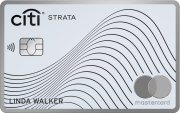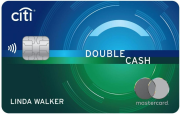The content on this page is accurate as of the posting date; however, some of the offers mentioned may have expired.

You might be in a situation where you are neck deep in credit card debt. The first thing you need to ensure is that you do not panic. If you start panicking, you will just end up complicating everything for yourself and everybody else. There are a lot of things that you can do to sort out the problem, and this can also include applying for credit cards for bad credit. There are many places which offer such cards which will help you pay off your debts, but before you do that; first try to analyze whether there is any other option to get you off the hook.
You might be tempted to go with the option of getting a new credit card to pay off the debt, but do be aware that you will still use these cards and you will have to pay interest for the amount that you transfer from your outstanding balance on the current credit account.
When a person is in debt, it is usually because he or she must have had a number of credit cards. And if you make even one late payment on one of those credit cards, your interest rate can be hiked up to the maximum possible interest rate for that particular bank. And you would not be in a position to go against the banks decision since it was your fault in the first place. The APR or annual percentage rate is the magic number which can be raised the maximum possible annual rate by the company after a defaulted payment. And when one company does it, the other banks which have given you credit cards will automatically follow suit whenever you fail to make a payment or you delay a payment. And this is bound to happen if you have a number of accounts to look after.
The APR or annual percentage rate is the annual percentage that you need to pay on your existing balance. When that percentage is prorated to a monthly rate which is based on the amount currently owed by you, it can fluctuate very erratically. In order to avoid all of this, the ideal case would be for you to pay off your dues every month on time without fail.
But there are times when you cannot avoid making a late payment or you might have simply overlooked a due slip. In such cases, go ahead and pay the late fees if any in full. But before doing this, try to plead your case with a representative from the bank, in most cases they will be willing to consider your case if it is a first offense. And if you are not able to pay the dues, try to settle it with the bank by renegotiating the debt. Most banks would be willing to work with you on this in order to make it easier for you to pay up over a period of a couple of months. But if you are not able to do this, go for a new crediting account as a last resort in order to conduct a balance transfer.





